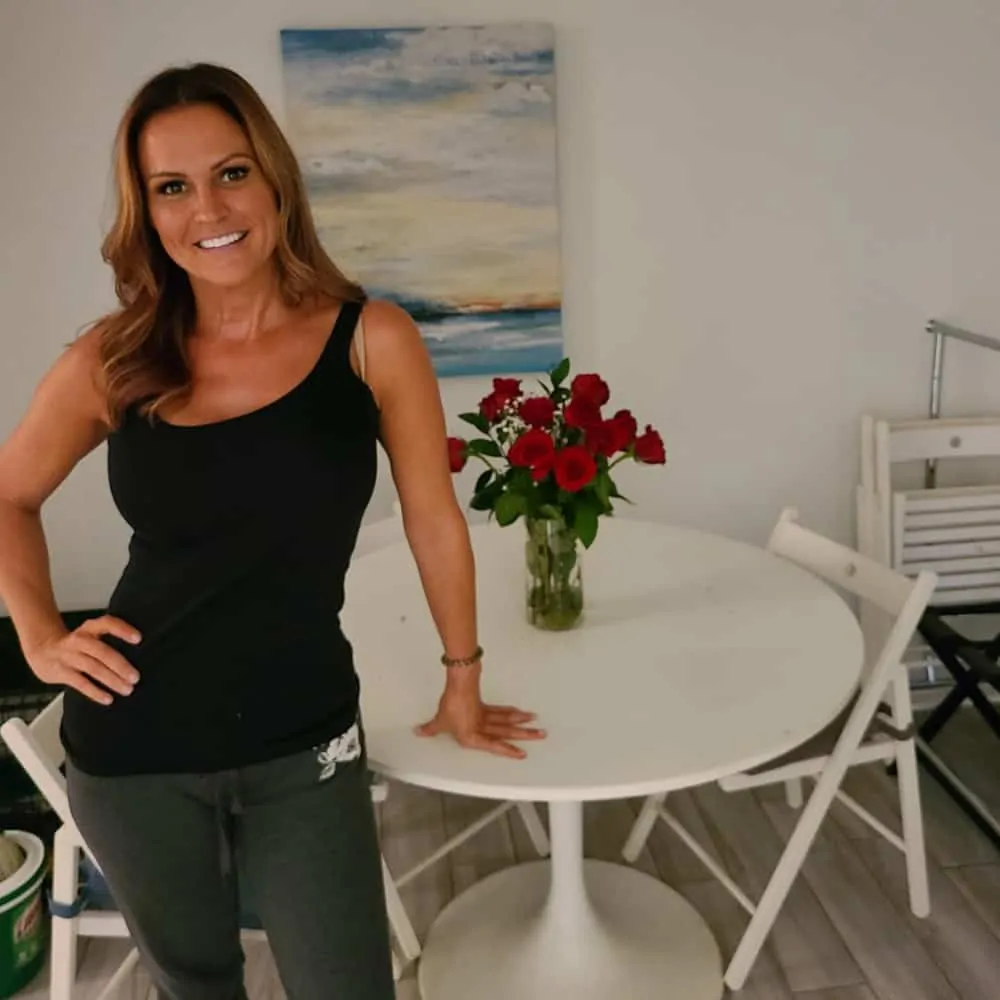Clean Date:April 1, 2019
Age:44
From:Texas

I tried to clean up my act, and I managed to not drink for five years, but then I was diagnosed with lupus and got into a car accident. I had to get spinal surgery, so the doctor prescribed me opiate painkillers, and I became addicted to them. I didn’t “abuse them,” meaning I took them as prescribed, but when I tried to get off of them, I couldn’t, and I realized I was addicted.
I got married for the second time, and when anything in my life (including my marriage) became unstable, I would take more pills. I hear many people in recovery say that they took drugs to escape their lives, but I took drugs to be included in life. It made me social and able to be comfortable in my own skin around other people. It made me productive, but then the more I used, the more my life would fall apart, so I would use more. It was a vicious cycle. Eventually I was introduced to hardcore drugs, and my life spiraled out of control. My health was deteriorating quickly.
Being in active addiction was stressful because of the fear of withdrawal, running out of opiates and not being able to perform for my job or being in front of people. There was also the thrill of going and obtaining the drugs, so it was a double-edged sword. The only thing I ever feared was running out of drugs: not the fear of getting caught or losing my whole life. Once I was in active addiction, nothing mattered except obtaining that feeling.
My rock-bottom moment was me staying up for four days, high on cocaine, opiates, Adderall, and Ritalin. I hadn’t eaten or slept and was working as a managing director for an investment banking firm. One of our clients had reached out and said, “Hey, you’re really skinny. I want to let you know I’m an alcoholic.” and I knew what he was doing. He said, “Do you think you need some help?” and once I realized that our clients could tell then, I knew I had a problem. That planted the seed that I needed help. I was sick and 105 lbs., so I made a phone call to M2therock, my good friend, who DJs a recovery-based radio show in Dallas. I told him I needed help, he made a phone call, and he connected me to Doctor Barry at Recovery Unplugged. Within a day, I was on a plane.
Being in recovery is manageable because I’ve done work on myself, took responsibility and accountability, and stopped playing the victim role. I never realized I was playing it because I’ve had many traumatic events in my life. It was easy for me to blame people, places, and things for my reactions. Even though the collateral damage was affecting everything and everyone I loved dearly. All those things I had lost (kids, marriage, job, dad, sisters, health) have returned to my life. Just by being a productive member of society, those things have come back to me. My recovery has been a country song played backward. Now I’m clear-minded and able to hold my tongue. I learned to try not to fix other people. I’ve learned if I just concentrate on myself, the rest falls into place.
The advice I’d give to an addict is to understand that asking for help is not a sign of failure. It’s actually the first sign you’re on your way to winning. Be willing to take suggestions, and even when you start to feel better, keep taking those suggestions. Ask for help even if it’s just an ambiguous “I need help”. Surround yourself with people who have the characteristics and things you want. If your loved one is struggling, just know there is a fine line between enabling and helping someone. Reach out to a recovery center because they aren’t just there to take your money. There are people there who will talk to you and give you options. This is what they do every day. There’s also Nar-Anon and Al-anon that can guide you through where your fine line is, setting that boundary.
The biggest lesson I’ve learned from recovery is to be honest about everything. I used to be so concerned with what people thought of me. My internal dialogue was so negative, I felt like nothing was good enough. I’ve learned to see the positive side of things. Even in my forties, I continue to learn and grow…and I’m grateful for that. Addiction is a symptom of the problem. The problem is the reason you’re uncomfortable in your own skin. Once you discover that reason and defeat it, recovery is possible. Recovery Unplugged saved my life. My favorite part of Recovery Unplugged was my group. Seven of my friends that I met there are still clean, and I never have really had friends. Recovery Unplugged helped them and me; it works. I’ve learned how to listen and be a friend, and to let people be a friend to me.